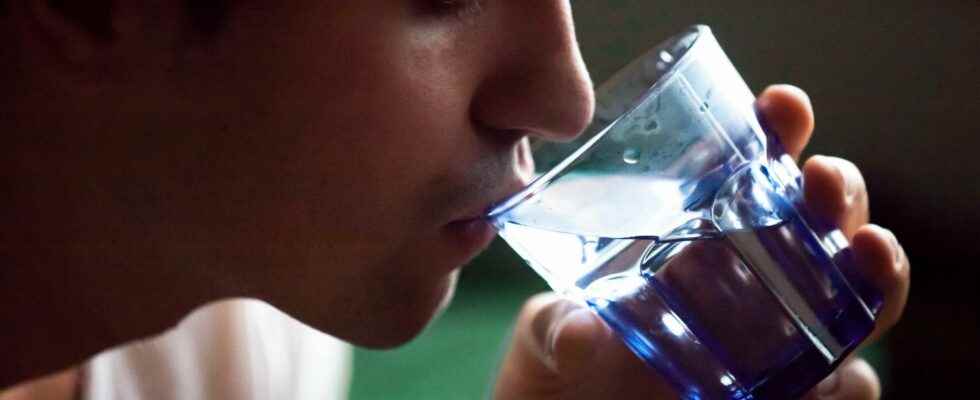If you’ve ever been thirsty, then you’ve already been dehydrated. Thirst is only the first signal of dehydration. But poorly managed, the outcome of dehydration can be fatal.
Because his adult body is made up of 60% of it but cannot store it, water is vital for humans. Water performs many functions essential to the maintenance of homeostasis and life. Thus, it is essential to take care to ensure water intake to avoid dehydration, which can have disastrous effects.
Water circulates through the body in an uninterrupted cycle and is never stagnant. What is eliminated must be compensated. And humans lose an average of two liters of water a day: 0.5 liters per sweat and perspiration (diffusion of water vapor through the stratum corneum of the’epidermis), 0.5 liters per breath, and one liter per the urines. To compensate for these losses, it is often recommended to absorb an average of two liters of water each day: 1.5 liters per drink and 0.5 liters per food.
However, these figures are averages that depend on many factors, such as body size, age, or activity. physical. If water represents 60% of the body weight of an adult, this average rises to 70% in a child and 55% in an elderly person. It will also be influenced by the composition of the body in fat or muscle: if the adipose tissue is composed of 10% water, the muscle is 75%. Thus, the more muscular a person is, the more water will represent a significant proportion of his weight, and the greater his water needs will be.
Dehydration: an imbalance between water loss and intake
If the balance is broken, that is to say that the losses are greater than the water intake, the body becomes dehydrated. If man loses 2% of his water, he then feels the need to drink. At 10% loss, the skin retracts and the dehydrated person may suffer hallucinations. Dehydration can be fatal if water loss reaches 15%.
Dehydration results from an imbalance between water intake and loss: in other words, the dehydrated person does not drink enough water, eliminates too much, or both. The origins of too much water loss can be numerous: diarrheaexcessive sweating, burns, taking diuretic drugs (which increase urine production) or laxatives, alcohol intake (which has diuretic effects), or certain chronic diseases.
Symptoms of dehydration, moderate or severe
The first symptom of dehydration is of course thirst. It may be accompanied by a feeling of dry mouth. In order to limit water loss as much as possible, the body will reduce its perspiration and its production of urine. If the loss of water is not quickly compensated and the dehydration continues, the symptoms are likely to get worse.
When the volume of water in the body decreases, that of the blood too, which lowers blood pressure. To overcome this problem, the water contained in the cells will pass into the extracellular compartment and into the blood to maintain as normal a volume as possible. Downside: the cells will then curl up and dry out. And when this system is no longer sufficient to maintain blood volume, drops in blood pressure can occur, causing discomfort or even fainting.
When the dehydration becomes severe, clinical signs include headaches, dark circles, skin that lacks flexibility (a fold appears on the skin when pinched), damage to internal organs, too little irrigation. These lesions can become irreversible if the dehydration persists. A severely dehydrated person may experience confusion, hallucinations, intense fatigue or, on the contrary, restlessness. The most serious cases may end in coma or death of the patient.
The elderly and babies, more vulnerable to dehydration
If the elderly are more at risk of dehydration, it is because they feel thirst later. For babies, water represents a greater proportion of their body (about 70%). An equal volume water loss will therefore be more significant for an infant’s body weight.
It is therefore necessary to ensure the correct hydration people at risk – particularly in times of high heatwhen perspiration and therefore the water losses are greater.
Mild dehydration can be cured by drinking enough water. If the water losses are due to diarrhoea, vomiting or excessive sweating, the dehydrated person will also be deficient in salts. minerals that will have to be compensated.
Hydration solutions (sold at pharmacies), sports drinks, vegetable broth or sugar water can help with this problem. More severe dehydration is an emergency and will require prompt consultation to avoid complications.
Interested in what you just read?
Subscribe to the newsletter Health question of the week : our answer to a question you ask yourself (more or less secretly). All our newsletters
